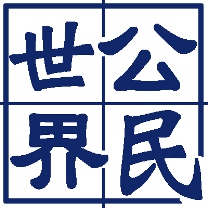Michael的外國同事在會議中向老闆提出許多新想法,但他從辦公室走出來時,卻一臉沮喪。
Michael上前關心,問他發生了什麼事。同事回說:The boss brushed off all my suggestions.
Brush不是刷子嗎?老闆拿了個刷子給他做什麼呢?在英語中,brush這個字除了常見的「刷子」或「刷洗」等意思,還有幾種道地用法,在商業溝通中也很實用。
1.The boss brushed off all my suggestions.
(X)老闆刷了我的建議。
(O)老闆沒聽我的建議。
Brush off原來的意思是「刷掉」。例如:
He brushed the snow off his coat.
(他撣去大衣上的雪。)
刷掉進一步延伸為「不理、漠視別人的想法」,經常指在討論時,輕視別人的貢獻,有敷衍的意味。例句:
When I proposed the new marketing strategy, I felt like my ideas were just brushed off by the senior management.
(當我提出新的市場策略時,我感覺我的想法被高層管理完全無視了。)
Brush off也有名詞用法,例如:
So she gave you the brush-off, did she?
(這麽說,她沒有理你,對吧?)
2.I greeted Jim effusively, but I got the brush.
(X)我熱情的和Jim打招呼,但卻拿到一把刷子。
(O)我熱情的和Jim打招呼,他卻沒理我。
和上一個brush差不多,在商業場合中,get a/the brush指的是「遭到拒絕、被冷落」,特別是在尋求合作或申請核准的過程中。例如:
We tried to secure funding from several investors, but unfortunately, we got the brush from most of them.
(我們試圖從幾位投資者那裡獲得資金,很不幸,多數都沒有回應。)
3.I thought I'd brush up (on) my English before the interview.
(X)面試前我得刷一下英文。
(O)面試前我得複習一下英文。
Brush up on指的是「重新學、複習」,以提高技能或知識。這在商業場合中非常有用,特別是在準備會議或演講前。例句:
I need to brush up on my project details before the next client meeting.
(在下次客戶會議之前,我需要整理一下我的專案細節。)
責任編輯:倪旻勤
核稿編輯:陳瑋鴻



